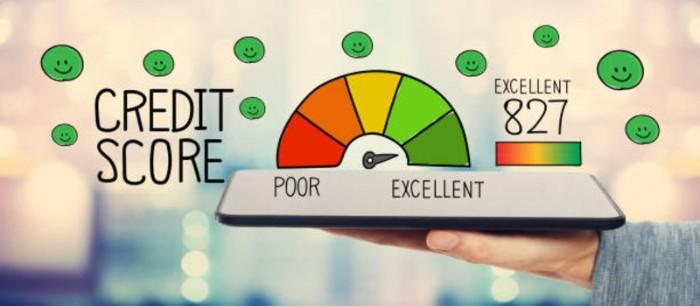Do Credit Limit Increases Affect Your Credit Score
May 16, 2023 By Kelly Walker
Having a credit card can be incredibly helpful for managing emergency expenses and making large purchases that would otherwise take months to save up for. However, having too much available spending power can make it easier to overspend and encourage people to incur debt they may not easily be able to pay back. It's important to evaluate your financial situation regularly so you can decide if increasing your credit limit is the right choice or if other options should be explored instead. In this blog post, we'll explore the pros and cons of increasing your credit limit as well as some tips on how to do it responsibly.
Pros and cons of increasing your credit limit:
Having a higher credit limit can have both positive and negative effects depending on your financial status. Although it can provide you with more flexibility in spending and managing expenses, and can also boost your credit utilization ratio (an important consideration in your credit score calculation), it is important to evaluate your financial situation before opting to increase your credit limit.
If you tend to overspend and your income is not stable, getting a higher credit limit can lead to more debt than you can handle. Moreover, some credit card companies might charge an annual fee for increasing your credit limit that offsets some of its advantages. Before asking for a credit limit increase, carefully consider the advantages and disadvantages and determine if it suits your financial requirements.
What impact does a credit limit increase have on your credit score:
Your credit score is important and should be protected. Requesting a credit limit increase may seem like a good idea, but it could be harmful to you if not used wisely. This is because a higher credit limit means more credit available, which could lead to increased debts and interest payments if not managed effectively.
If you monitor your balance and make timely payments, a higher credit limit can lower your credit utilization rate, which is how much of your available credit you're using. Keep in mind that the effect of a credit limit increase depends on the individual, so it's wise to seek advice from a financial specialist before taking action.
Tips for deciding whether or not to increase your limit:

When deciding whether to increase your credit limit, it's important to consider your financial situation and goals for using the credit card. If you are dealing with debt or have a tendency to overspend, increasing your limit may not be wise.purchase or travel extensively, a higher limit may be helpful. Ultimately, take the time to weigh the pros and cons and make an informed decision that works best for you and your finances.
Responsible ways to use the additional funds if you choose to increase your limit:
If you plan on increasing your credit limit, make sure to consider how you'll utilize the additional funds. Although it may be tempting to indulge in a shopping spree or plan an extravagant vacation, it's crucial to be prudent with your spending. One idea is to pay off any pending bills or debts you might have. Doing so will not only enhance your credit score but also offer you solace, as it will assist you in achieving monetary security.
How to keep track of spending when increasing your credit limit:
Though increasing your credit limit can offer more financial freedom, it is crucial to be mindful of increased spending. With a higher limit, it is easy to overspend and accumulate more debt than planned. To prevent overspending, it is wise to have a system for keeping track of expenses. This could include using a budgeting app, creating a spreadsheet, or having a notebook handy to note down your purchases. Regularly monitoring your spending will help you maintain control of your finances. Able to stay within your means and make informed decisions about when and how to use your credit card. Remember, a higher limit is not an invitation to overspend - it's a tool to help you manage your finances more effectively.
Advice from financial experts on managing increased credit limits:

Managing increased credit limits can be daunting, but following the advice of financial experts can ease your worries. First, avoid the temptation to spend more just because you have a higher limit. Stick to your budget and only charge what you can afford to pay off each month. Next, consider setting up automatic payments to ensure you never miss a payment and damage your credit score. Additionally, regularly checking your credit report can help you stay on top of any errors or fraudulent activity. By following these tips from financial experts, you can successfully manage your increased credit limit and maintain healthy credit habits.
Conclusion:
Ultimately, an increased credit limit can be a great thing if used responsibly. It allows you to cover large purchases, establish a good credit score, and offers an emergency fund in case of unexpected life events. It’s imperative that consumers understand how to use their newfound line of credit wisely and employ strategies to effectively manage the new limit. While increasing your credit limit can bring peace of mind and long-term benefits, it also requires discipline and smart budgeting for success.
FAQs:
How can I make sure I don’t overspend with an increased credit limit?
To avoid overspending, it’s important to have a system in place to track your expenses. This can include using a budgeting app, keeping a spreadsheet, or even simply writing down your purchases in a notebook. Additionally, consider setting up automatic payments to ensure you never miss a payment and damage your credit score.
Is it possible to have too high of a credit limit?
Yes, having too high of a limit can cause more harm than good. If your credit utilization rate (the amount of available credit you’re using) is too high, your credit score may decrease. It’s important to keep up with your spending and make sure you’re not overusing the additional funds you have been given.
Is it wise to use an increased limit for large purchases?
Yes, one of theWhat should I consider before increasing my credit limit?
Answer: Before increasing your credit limit, it's important to consider your overall financial situation. If you are struggling with debt or have a history of overspending, increasing your credit limit may not be the best choice. Additionally, think about your goals for using the credit card and take the time to weigh the pros and cons.








